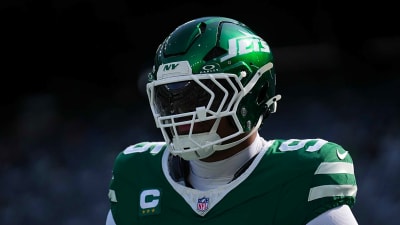
Pictured: An aerial view of Manhattan in New York City. (Photo by Jakub Porzycki/NurPhoto via Getty Images)
The New York City mayoral race often makes national news, but it’s been especially buzzy in 2025 with progressive Democratic upstart Zohran Mamdani besting former New York Gov. Andrew Cuomo in the Democratic primary. Now Cuomo is running as an independent, with Curits Sliwa once again the longshot Republican nominee.
Prediction market Kalshi has odds posted for the winner, and Mamdani is a heavy favorite.
You can trade on political events like this and thousands of other markets at Kalshi, which is available in all 50 states. We wrote a full explainer on how it works here.
The percentages you see below represent what the market roughly believes each candidate’s chances are (the “spread” is the reason it adds up to more than 100%, and it’s how market makers make money. Again, see our full Kalshi how-to guide for why and how this works.)
NYC Mayor’s Race Odds
Odds via Kalshi and update every hour.
NYC Mayor’s Race Timeline
The 2025 New York City mayoral race has emerged as one of the most closely watched political contests in recent memory, shaped by ongoing debates over public safety, housing affordability, and the city’s post-pandemic recovery.
Early Developments (2024)
Speculation about the 2025 race began intensifying in late 2024 as questions mounted about Mayor Eric Adams’ political future while he dealt with the fallout from a variety of different scandals. The previous three mayors — Rudy Guliani, Michael Bloomberg and Bill de Blasio — had all won re-election and served a second term.
Campaign Announcements (Late 2024 – Early 2025)
The first major candidate to officially enter the race was progressive City Council member Mamdani, who announced his candidacy in early 2025 with a platform focused on affordable housing and expanding social services. His campaign quickly gained traction among younger, more progressive voters and drew comparisons to Alexandria Ocasio-Cortez’s insurgent 2018 congressional campaign.
Former Governor Andrew Cuomo, who had largely stayed out of the political spotlight since his 2021 resignation following a sexual harassment scandal, surprised many by signaling interest in a comeback through the mayor’s office. His potential candidacy drew immediate pushback from progressives who hadn’t forgotten the controversies that led to his departure from Albany, but polling suggested he maintained significant name recognition and support among moderate Democrats.
The Field Takes Shape (Spring 2025)
By spring 2025, the race had crystallized into a multi-candidate affair. Curtis Sliwa, the Guardian Angels founder who ran unsuccessfully as the Republican nominee in 2021, announced another bid, positioning himself as the law-and-order candidate.
The other Democratic runners included:
- Andrew Cuomo, former governor of New York
- Adrienne Adams, speaker of the New York City Council
- Selma Bartholomew, educator
- Michael Blake, former state assembly member from the 79th district
- Brad Lander, New York City comptroller
- Zellnor Myrie, state senator from the 20th district
- Paperboy Prince, artist
- Jessica Ramos, state senator from the 13th district
- Scott Stringer, former New York City comptroller
- Whitney Tilson, hedge fund manager
Mayor Adams announced in April he’d exit the Democratic primary and run as an independent.
Sliwa ran uncontested for the Republican nomination.
Key Issues and Debates
Throughout the spring and summer, debates centered on several critical issues. Public safety remained paramount, with candidates offering competing visions for police reform and crime reduction. The ongoing affordable housing crisis dominated discussions, with proposals ranging from aggressive rent control to zoning reform. The city’s fiscal health, strained by pandemic-era spending and evolving work patterns that reduced commercial tax revenue, also emerged as a central concern.
The Race Intensifies (Summer-Fall 2025)
As the race moved into its final phase, prediction markets like Kalshi showed significant volatility in candidate odds, reflecting the fluid nature of voter sentiment. Mamdani’s progressive campaign gained momentum among younger voters and in traditionally liberal neighborhoods, while Cuomo’s experience and name recognition kept him competitive despite ongoing skepticism about his return to politics.
On June 24, Mamdani won the Democratic primary over Cuomo 56.39% to 43.61%. NYC’s mayor race uses rank-choice voting in two rounds, so the other candidates were eliminated following the first round, leaving just Mamdani and Cuomo in the second round: All first-choice votes are counted. If a candidate receives more than 50% of first-choice votes, that candidate wins. If no candidate earns more than 50% of first-choice votes, then counting will continue in rounds.
More must-reads:
Breaking News
Trending News
Customize Your Newsletter
 +
+
Get the latest news and rumors, customized to your favorite sports and teams. Emailed daily. Always free!








